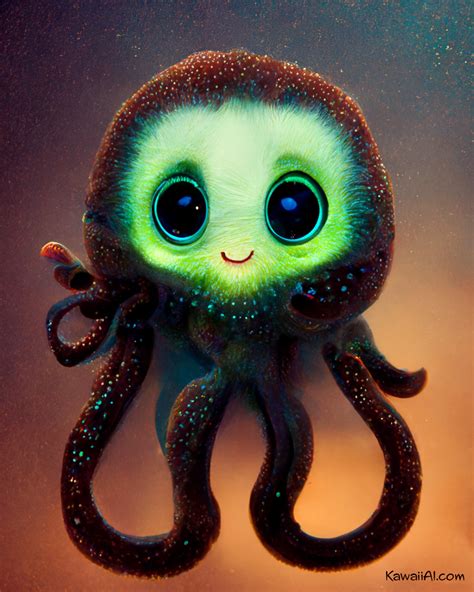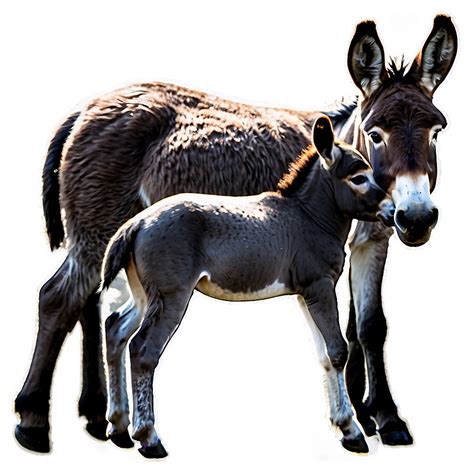
A heartwarming video showing a tiny octopus seemingly attempting to play with a human has captured the internet’s attention, showcasing the surprising intelligence and curiosity of these cephalopods. The viral clip, filmed by marine biologist Julian Obayd, features a small octopus reaching out to interact with Obayd’s hand, demonstrating an engaging and playful demeanor that has resonated with viewers worldwide.
The now-viral video, initially posted on Instagram and later shared across various social media platforms, has garnered millions of views and sparked discussions about marine life and the potential for interspecies connection. “This octopus was indeed very curious,” Obayd stated in the Instagram post accompanying the video. “It spent a good amount of time checking me out and seemed very interested in playing.” The encounter highlights the complex cognitive abilities of octopuses, often regarded as one of the most intelligent invertebrates.
Obayd, who is deeply passionate about marine conservation and education, regularly documents his encounters with marine life, aiming to raise awareness about the importance of protecting ocean ecosystems. This particular interaction serves as a poignant reminder of the intricate lives and behaviors of creatures often hidden beneath the ocean’s surface. The captivating footage not only entertains but also prompts reflection on the need for greater understanding and respect for marine biodiversity.
Details of the Encounter
The video showcases the small octopus extending its tentacles toward Obayd’s hand, gently touching and exploring the human’s skin. The octopus’s movements appear deliberate and inquisitive, suggesting a level of curiosity that goes beyond simple sensory exploration. Obayd’s calm and gentle demeanor during the interaction likely contributed to the octopus’s willingness to engage, creating a safe and non-threatening environment.
The exact species of the octopus remains unspecified in the initial reports, but its small size and behavior suggest it could be a juvenile or a smaller species of octopus known for its intelligence and interactive tendencies. Octopuses are renowned for their problem-solving abilities, camouflage skills, and unique personalities, making them fascinating subjects of scientific study.
Scientific Insights and Octopus Intelligence
Octopuses belong to the class Cephalopoda, a group of marine animals characterized by their bilateral body symmetry, prominent head, and set of arms or tentacles. They are found in oceans across the globe and exhibit a remarkable range of behaviors, from hunting strategies to complex communication methods.
One of the most distinguishing features of octopuses is their intelligence. They possess a decentralized nervous system, with two-thirds of their neurons located in their arms, allowing each arm to operate semi-independently. This unique neural architecture enables octopuses to perform complex tasks, such as opening jars, solving mazes, and even recognizing individual humans.
Research has shown that octopuses are capable of learning through observation and imitation. They can also remember solutions to problems for extended periods, demonstrating a capacity for long-term memory. Furthermore, octopuses have been observed using tools, a behavior previously thought to be limited to vertebrates. For example, some octopuses use coconut shells for shelter, carrying them across the seafloor and assembling them when needed.
The Role of Play in Animal Behavior
The notion of animals “playing” is a subject of ongoing scientific inquiry. Play is generally defined as voluntary, intrinsically motivated behavior that serves no immediate survival function. However, it is believed that play is essential for developing cognitive and social skills, particularly in young animals.
In the case of octopuses, observations of playful behavior have been documented in both captive and wild settings. Captive octopuses have been seen manipulating objects, such as toys and food items, in ways that suggest they are deriving enjoyment from the activity. Wild octopuses have been observed “surfing” waves and engaging in other seemingly recreational activities.
While it is difficult to definitively determine the motivations behind these behaviors, scientists hypothesize that play allows octopuses to practice skills that may be useful in hunting, defense, or social interactions. It may also serve as a form of mental stimulation, keeping their complex brains engaged and active.
Ethical Considerations and Marine Conservation
The viral video of the octopus playing with a human also raises important ethical considerations regarding human interactions with marine life. While the encounter appears to be harmless, it is essential to remember that octopuses are wild animals and should be treated with respect and caution.
Disturbing or harassing marine animals can have negative consequences, disrupting their natural behaviors and potentially causing stress or injury. It is crucial to observe marine life from a safe distance and avoid interfering with their environment.
Marine conservation efforts are essential for protecting octopuses and other marine species from the threats of habitat destruction, pollution, and overfishing. By supporting organizations that are working to conserve marine ecosystems, individuals can contribute to ensuring that future generations have the opportunity to appreciate the wonders of the ocean.
Public Reaction and Social Media Impact
The video’s widespread popularity underscores the public’s fascination with marine life and the power of social media to raise awareness about environmental issues. Many viewers expressed awe and wonder at the octopus’s intelligence and curiosity, while others commented on the importance of protecting marine ecosystems.
Social media platforms have become increasingly important tools for marine biologists and conservationists to share their research and engage with the public. By posting videos and images of marine life, they can help to educate people about the importance of biodiversity and inspire action to protect the oceans.
The viral video of the octopus serves as a reminder that even small interactions can have a big impact. By sharing stories and images of marine life, we can help to foster a greater appreciation for the natural world and encourage others to take steps to protect it.
Further Research and Conservation Efforts
The study of octopuses and other cephalopods is an ongoing field of research, with scientists constantly making new discoveries about their intelligence, behavior, and physiology. Advances in technology, such as underwater cameras and tracking devices, are allowing researchers to observe octopuses in their natural habitats and gain a deeper understanding of their lives.
Conservation efforts are also underway to protect octopuses and other marine species. These efforts include establishing marine protected areas, reducing pollution, and promoting sustainable fishing practices. By working together, scientists, policymakers, and the public can help to ensure that octopuses continue to thrive in the oceans for generations to come.
Expert Opinions and Perspectives
Marine biologists and experts in cephalopod behavior have weighed in on the significance of the viral video, emphasizing the importance of understanding these creatures and their complex interactions. Dr. Jennifer Mather, a leading researcher in octopus intelligence at the University of Lethbridge, has dedicated her career to studying the cognitive abilities of octopuses. She notes that the video highlights the potential for curiosity and exploration in these animals. “Octopuses are highly intelligent creatures, and this video demonstrates their capacity for interacting with their environment and with humans in a curious way,” Dr. Mather explains.
Dr. Peter Teske, a marine ecologist at the University of Johannesburg, emphasizes the need for caution when interpreting such interactions. “While the video is heartwarming, it’s important to remember that octopuses are wild animals, and we should always prioritize their well-being. Overly familiar interactions could disrupt their natural behaviors and potentially cause stress.”
The Future of Human-Animal Interactions in the Ocean
As technology advances and humans increasingly venture into the ocean’s depths, the potential for interactions with marine life will continue to grow. It is crucial that these interactions are guided by ethical principles and a commitment to conservation. Developing guidelines for responsible human-animal interactions in the ocean will be essential for protecting marine biodiversity and ensuring the well-being of these fascinating creatures.
Conclusion
The viral video of the tiny octopus’s interaction with a human serves as a powerful reminder of the intelligence, curiosity, and wonder of marine life. By sharing these stories and images, we can inspire a greater appreciation for the natural world and encourage others to take steps to protect the oceans. As we continue to explore and learn about these amazing creatures, it is essential that we do so with respect, caution, and a commitment to conservation. The future of human-animal interactions in the ocean depends on our ability to balance our curiosity with our responsibility to protect the delicate ecosystems that sustain all life on Earth. The encounter not only provides a moment of heartwarming connection but also sparks a broader conversation about the importance of marine conservation, the complexity of animal intelligence, and the ethical considerations of interacting with wildlife. The video, therefore, serves as both entertainment and an educational tool, promoting greater awareness and understanding of the underwater world.
Expanded Context: Octopus Conservation Status and Threats
While the viral video focuses on a heartwarming interaction, it’s essential to contextualize this within the broader scope of octopus conservation. Currently, most octopus species are not listed as endangered or threatened by major conservation organizations like the IUCN (International Union for Conservation of Nature). However, this doesn’t mean they are without risk.
- Data Deficiency: A significant challenge in assessing the conservation status of octopuses is the lack of comprehensive data. Many species are poorly studied, and their population sizes and trends are unknown. This data deficiency makes it difficult to accurately evaluate their vulnerability.
- Overfishing: Octopuses are increasingly targeted by fisheries worldwide, driven by growing demand in seafood markets. Unsustainable fishing practices, such as bottom trawling, can damage their habitats and deplete populations.
- Habitat Destruction: Coastal development, pollution, and climate change are all contributing to the destruction and degradation of octopus habitats, including coral reefs, seagrass beds, and rocky shores.
- Climate Change: Ocean acidification and warming waters can impact octopus physiology and reproduction, potentially affecting their survival and distribution.
- Bycatch: Octopuses are often caught as bycatch in fisheries targeting other species, leading to unnecessary mortality.
The Importance of Citizen Science
Given the challenges in studying and monitoring octopus populations, citizen science initiatives can play a valuable role. By involving the public in data collection and observation, researchers can gather more information about octopus distribution, behavior, and abundance. Citizen science projects can also raise awareness about octopus conservation and encourage people to take action to protect these fascinating creatures.
Octopus Farming: A Controversial Issue
With wild octopus populations facing increasing pressure, there is growing interest in octopus farming. However, this practice raises serious ethical and environmental concerns. Octopuses are highly intelligent and sensitive animals, and confining them to tanks in artificial environments can be detrimental to their well-being. Furthermore, octopus farming can contribute to pollution and habitat destruction, and the practice of feeding wild-caught fish to farmed octopuses can exacerbate overfishing. The debate over octopus farming highlights the complex challenges of balancing human needs with the ethical treatment of animals and the protection of marine ecosystems.
The Cultural Significance of Octopuses
Octopuses have held cultural significance for many societies throughout history. In some cultures, they are revered as symbols of intelligence, adaptability, and mystery. In others, they are viewed as food sources or objects of fear. Understanding the cultural significance of octopuses can provide valuable insights into human perceptions of marine life and the importance of conservation.
FAQ Section:
1. What is the significance of the viral video of the octopus playing with a human?
The video showcases the intelligence and curiosity of octopuses, highlighting their capacity for interaction and exploration. It raises awareness about marine life and the need for conservation, while also prompting ethical considerations regarding human-animal interactions in the ocean. As marine biologist Julian Obayd stated, “This octopus was indeed very curious… It spent a good amount of time checking me out and seemed very interested in playing.”
2. What makes octopuses so intelligent?
Octopuses possess a decentralized nervous system, with two-thirds of their neurons located in their arms, allowing each arm to operate semi-independently. They can learn through observation and imitation, remember solutions to problems, and even use tools. Their cognitive abilities are comparable to those of some mammals and birds.
3. Are octopuses endangered?
Currently, most octopus species are not listed as endangered or threatened by major conservation organizations. However, many species are poorly studied, and their population sizes and trends are unknown. Overfishing, habitat destruction, climate change, and bycatch pose potential threats to octopus populations.
4. What can individuals do to help protect octopuses?
Individuals can support marine conservation organizations, reduce their consumption of seafood from unsustainable fisheries, minimize their use of plastics and other pollutants, and advocate for policies that protect marine habitats. They can also participate in citizen science projects to help researchers monitor octopus populations.
5. What are the ethical concerns surrounding octopus farming?
Octopus farming raises serious ethical concerns because octopuses are highly intelligent and sensitive animals. Confining them to tanks in artificial environments can be detrimental to their well-being. Furthermore, octopus farming can contribute to pollution and habitat destruction, and the practice of feeding wild-caught fish to farmed octopuses can exacerbate overfishing.









